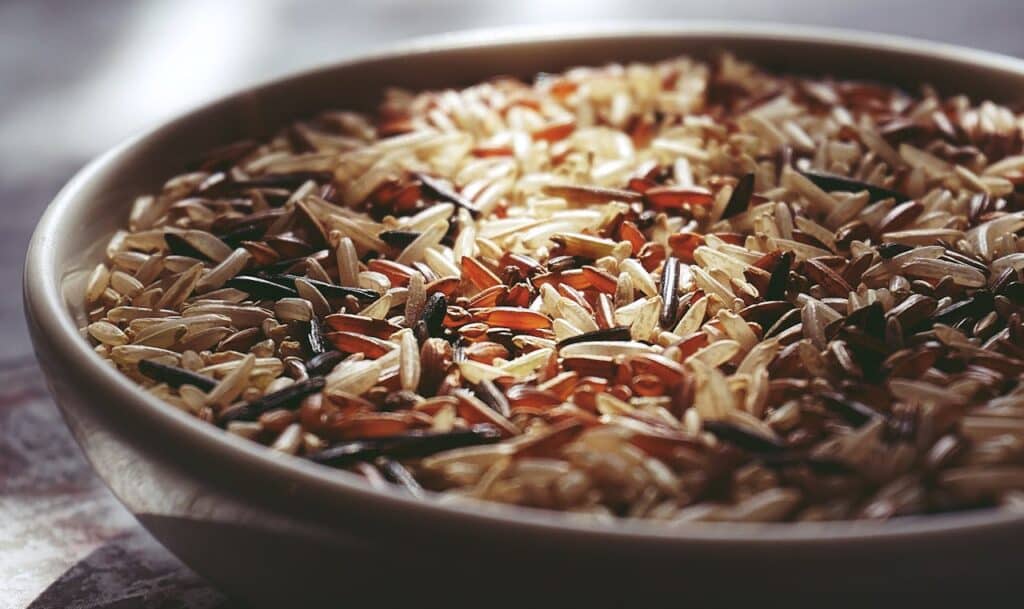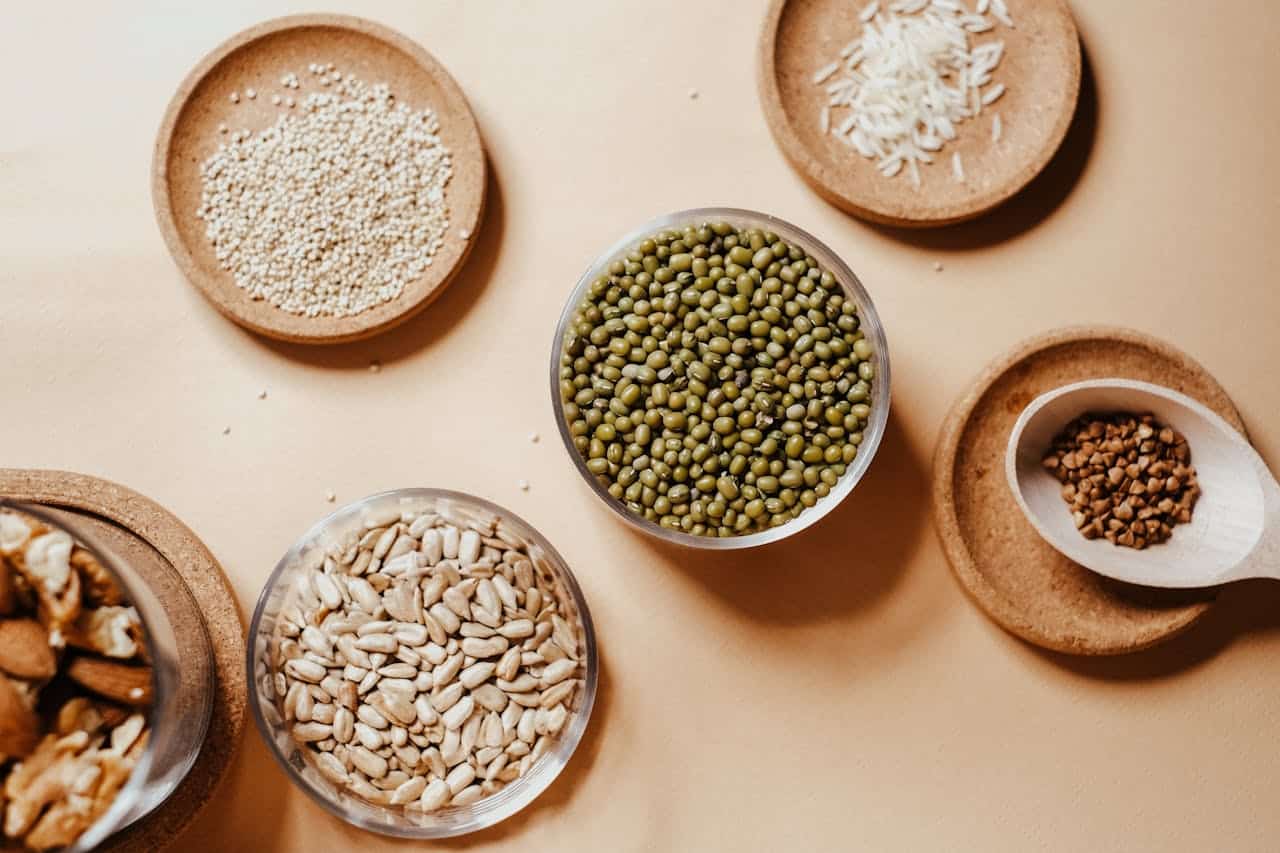Brown rice, a whole grain brimming with essential nutrients, has garnered significant attention for its potential health benefits. Unlike its refined counterpart, white rice, brown rice retains the bran and germ layers, which are packed with fiber, vitamins, and minerals. This article delves into the numerous health advantages associated with incorporating brown rice into your diet.

Nutritional Profile of Brown Rice
Brown rice is an excellent source of:
- Complex carbohydrates: Provides sustained energy and aids in blood sugar control.
- Fiber: Promotes digestive health, helps regulate bowel movements, and contributes to satiety.
- Magnesium: Essential for muscle and nerve function, blood pressure regulation, and bone health.
- Manganese: Supports bone health, metabolism, and antioxidant protection.
- Selenium: An antioxidant that protects cells from damage.
- B vitamins: Crucial for energy metabolism, brain function, and red blood cell production.
Nutritional value chart for Brown rice per 100 grams:
| Nutrient | Value |
| Calories | 341kcal |
| Carbohydrates | 74g |
| Fiber | 3.10g |
| Protein | 7.00g |
| Fat | 2.20g |
| Magnesium | 88mg |
| Manganese | 1.1mg |
| Thiamin (Vitamin B1) | 0.16mg |
| Riboflavin (Vitamin B2) | 0.11mg |
| Niacin (Vitamin B3) | 1.60mg |
| Vitamin B6 | 0.34mg |
| Folate | 42mcg |
Health Benefits of Brown Rice
Brown rice is a whole grain packed with nutrients that offer a myriad of health benefits. Let’s delve deeper into how this unrefined grain can positively impact your well-being:
Digestive Health
- Rich in Fiber: Brown rice is an excellent source of dietary fiber, which is essential for maintaining a healthy digestive system. Fiber adds bulk to your stool, preventing constipation and promoting regular bowel movements.
- Gut Microbiome: The fiber in brown rice nourishes beneficial gut bacteria, contributing to a balanced microbiome. A healthy gut microbiome is crucial for overall digestive health and immune function.
Heart Health
- Reduced Heart Disease Risk: The fiber in brown rice helps lower cholesterol levels, which is a key factor in reducing the risk of heart disease.
- Blood Pressure Regulation: Brown rice is rich in magnesium, a mineral essential for maintaining healthy blood pressure levels.
- Antioxidant Power: The antioxidants in brown rice help protect your heart from oxidative damage, reducing the risk of heart disease.
Blood Sugar Control
- Low Glycemic Index: Brown rice has a lower glycemic index compared to white rice, meaning it releases glucose into the bloodstream more slowly. This helps prevent spikes in blood sugar levels, making it beneficial for individuals with diabetes or those looking to manage their blood sugar
- Improved Insulin Sensitivity: The fiber in brown rice can help improve insulin sensitivity, allowing your body to use insulin more effectively.
Weight Management
- Feeling Fuller Longer: The high fiber content in brown rice helps you feel fuller for longer, reducing overall calorie intake and aiding in weight management.
- Sustained Energy: Brown rice provides a steady release of energy, preventing energy crashes and reducing the temptation to reach for unhealthy snacks.
Nutrient-Rich
- Essential Vitamins and Minerals: Brown rice is a good source of essential vitamins and minerals, including magnesium, manganese, selenium, and B vitamins. These nutrients play vital roles in various bodily functions.
- Antioxidants: The antioxidants in brown rice help protect your cells from damage caused by free radicals, reducing the risk of chronic diseases.
Brain Health
- Cognitive Function: Some studies suggest that the nutrients in brown rice may support cognitive function and memory.
- Neurodegenerative Diseases: Preliminary research indicates that the antioxidants in brown rice may play a role in protecting the brain from neurodegenerative diseases such as Alzheimer’s and Parkinson’s.
Skin Health
- Anti-Aging: The antioxidants in brown rice may help protect the skin from damage caused by free radicals, contributing to a youthful appearance.
- Inflammation Reduction: Brown rice has anti-inflammatory properties, which may benefit skin conditions like eczema and psoriasis.
Bone Health
- Mineral Content: Brown rice is a source of minerals like magnesium and manganese, which are essential for maintaining bone health.
Reduced Risk of Type 2 Diabetes
Brown rice is often linked to a reduced risk of Type 2 diabetes. This correlation is primarily due to its nutritional profile:
- Fiber Content: Brown rice is rich in fiber, which plays a crucial role in blood sugar control. Fiber helps slow down the absorption of glucose into the bloodstream, preventing spikes in blood sugar levels.
- Magnesium: A key mineral found in brown rice, magnesium helps regulate blood sugar levels by improving insulin sensitivity. Insulin is the hormone that helps glucose enter cells for energy.
- Low Glycemic Index: Brown rice has a lower glycemic index compared to white rice, meaning it causes a slower and steadier rise in blood sugar levels.
By incorporating brown rice into your diet, you can help maintain stable blood sugar levels, reducing the risk of developing Type 2 diabetes. It’s essential to combine this with other healthy lifestyle factors like regular exercise and a balanced diet for optimal results.
SUMMARY
Brown rice, a whole grain powerhouse, offers a multitude of health benefits. Packed with fiber, vitamins, and minerals, it surpasses its refined counterpart, white rice. This nutrient-rich grain aids digestion, supports heart health by lowering cholesterol and regulating blood pressure, and helps control blood sugar levels due to its low glycemic index. Brown rice also contributes to weight management, boosts energy, and provides essential vitamins and minerals. Beyond physical health, it may offer cognitive benefits, protect skin, support bone health, and reduce the risk of type 2 diabetes.
Follow Us on Instagram






